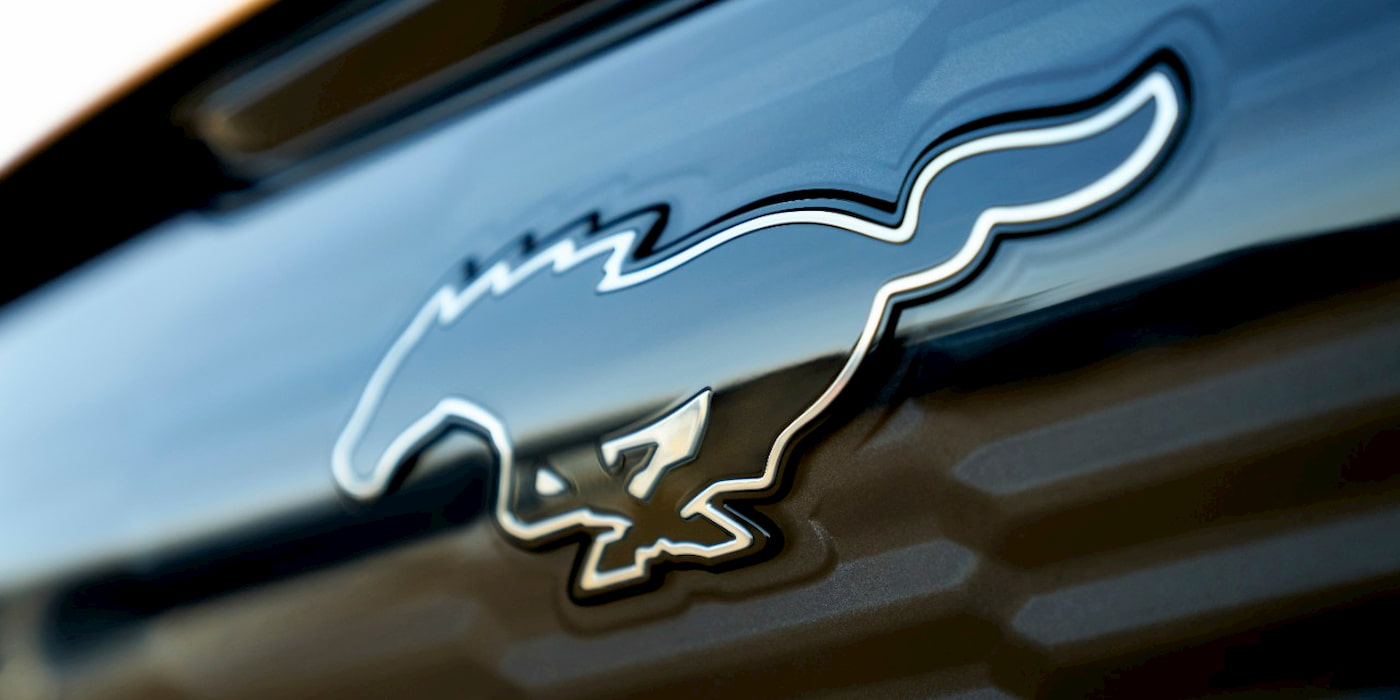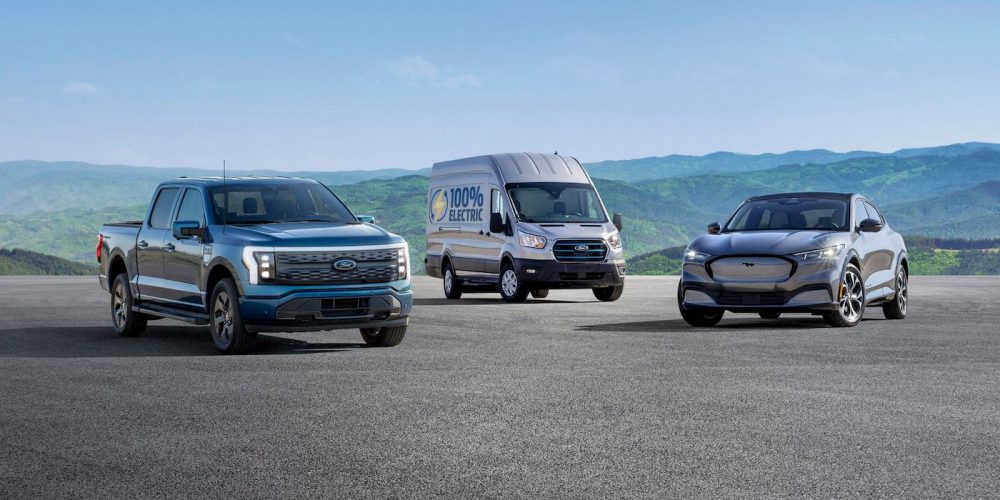
Ford released its September 2022 sales results Tuesday as the US automaker continues to see rising demand for its electric vehicles. Despite ongoing supply issues, Ford’s electric vehicle sales tripled (+197.3%) from last year, gaining 3.1% market share as the automaker looks to hit its goal of a 600,000 run rate by the end of 2023.
Rising demand for Ford electric vehicles boosts disappointing September
Despite overall sales declining almost 9% from September 2021, Ford’s EVs remain a hot commodity. Ford’s electric vehicle sales rose 197.3% year over year, and the company sold 4,691 total EVs in September.
The strong interest in Ford’s new electric vehicles helped offset an otherwise bleak September sales release. The automaker continues – like most of the industry – to struggle with supply chain issues and parts shortages.
Ford claims, “for the sixth straight month, more than 50% of Ford retail sales came from previously placed orders.”
A key thing to note is that Ford saw a significant 18.3% decline in truck sales, the company’s crown jewel and previous best-selling segment. Since launching in June, Ford has sold 8,760 F-150 Lightnings, the company’s electric pickup.
Perhaps, more importantly, the all-electric Mustang Mach-E continues to see high demand despite being on the market for almost three years. Ford sold 2,324 Mach-Es in September, a 47% increase from last year, bringing the total to 28,089 in 2022.
Ford’s third and final electric vehicle, the E-Transit van that customers began receiving earlier this year, dominates its market with over 90% share. The E-Transit remained the best-selling electric van through September, selling 4,387 since its release.
Andrew Frick, VP of sales for Ford Blue, talks about the company’s EV success thus far, stating:
Ford continued to see high-demand vehicles turning at record rates in September,
while developing electric truck and van leadership and extending our overall truck
leadership.
Ford gained 3.1% EV market share in September YOY, reaching 7% of the total. However, with 41,236 electric vehicle sales year to date and lingering supply chain issues, how will Ford hit a 600,000 run rate by the end of next year?

How Ford plans to increase EV production
Ford has big plans to scale the output of its electric vehicles and get more EVs in the hand of customers over the next few years. However, meeting its goal to hit a 600,000 run rate by the end of 2023 and then 2 million by 2026 will take significant expansion.
The demand is already there, as Frick explains in Ford’s September sales:
Demand remains strong with new retail orders rapidly expanding.
The Ford F-150 Lightning turns in just eight days, while the Mach-E turns in 10 days.
Ford mentions retail orders for 2023 models are up 244% over 2022 models so far, signaling the company has the buyers. Yet, like many automakers, the key to meeting this demand will be ensuring supply.
The automaker said in July it has locked up 60 GWh of battery supply to meet its 600,000 target run rate, also confirming that it will be adding iron-phosphate (LFP) cells to reduce its reliance on scarce minerals like Nickel. Ford says the transition could result in 10% to 15% in material savings.
As for hitting 2 million by 2026, Ford claims to have 70% of the battery cell capacity required. In September, Ford set new dealer requirements to get its network on board for an electric vehicle push as the automaker looks to gain further market share and catch up with Tesla in electric vehicle sales. Although, seeing as Tesla just sold a record 343,000 EVs in Q3, it will likely be an uphill battle.
FTC: We use income earning auto affiliate links. More.



Comments